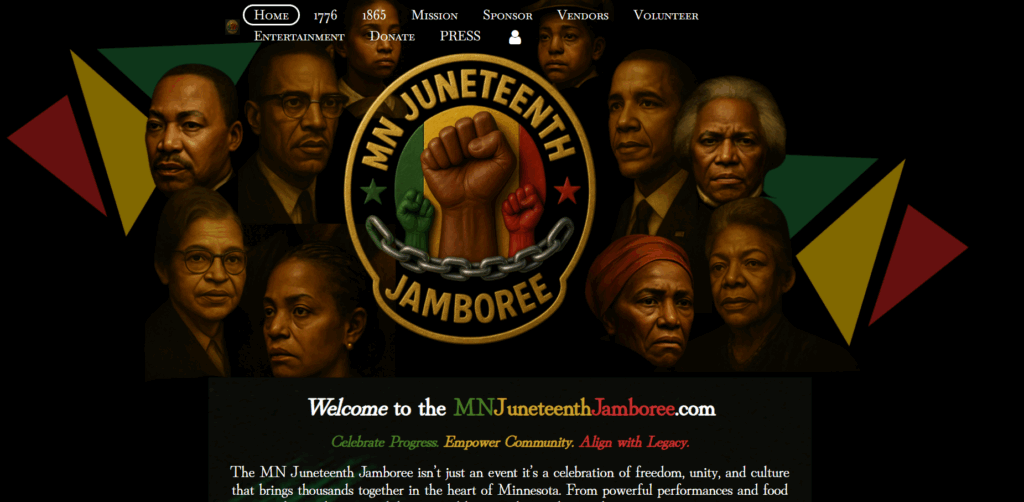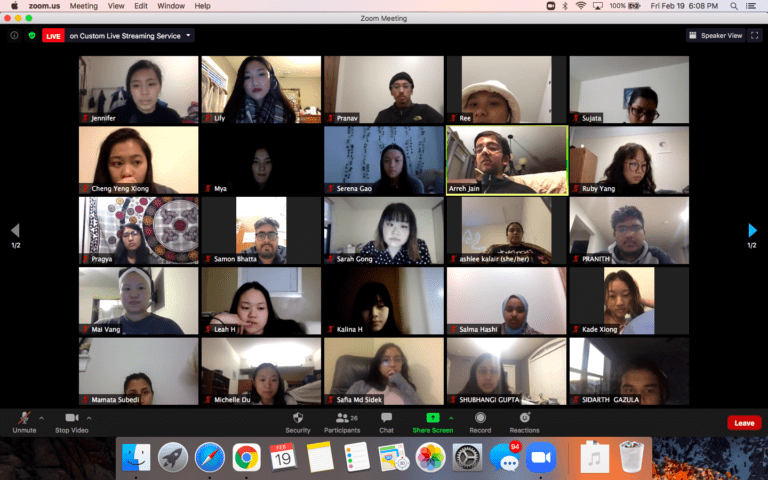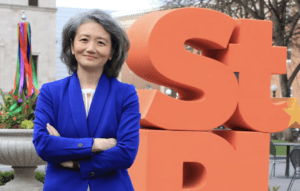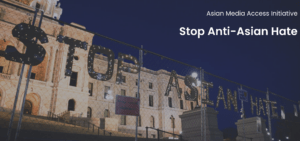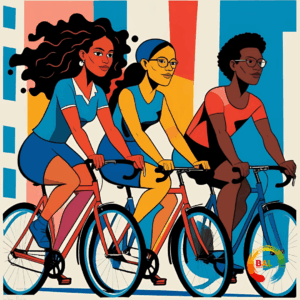Preface: As we approach the Juneteenth celebration on June 19th along West Broadway in North Minneapolis, Asian Media Access is spotlighting local leaders who are shaping the spirit and impact of this important holiday. This community celebration not only honors Black freedom and resilience but also uplifts the voices and initiatives that make change happen year-round.
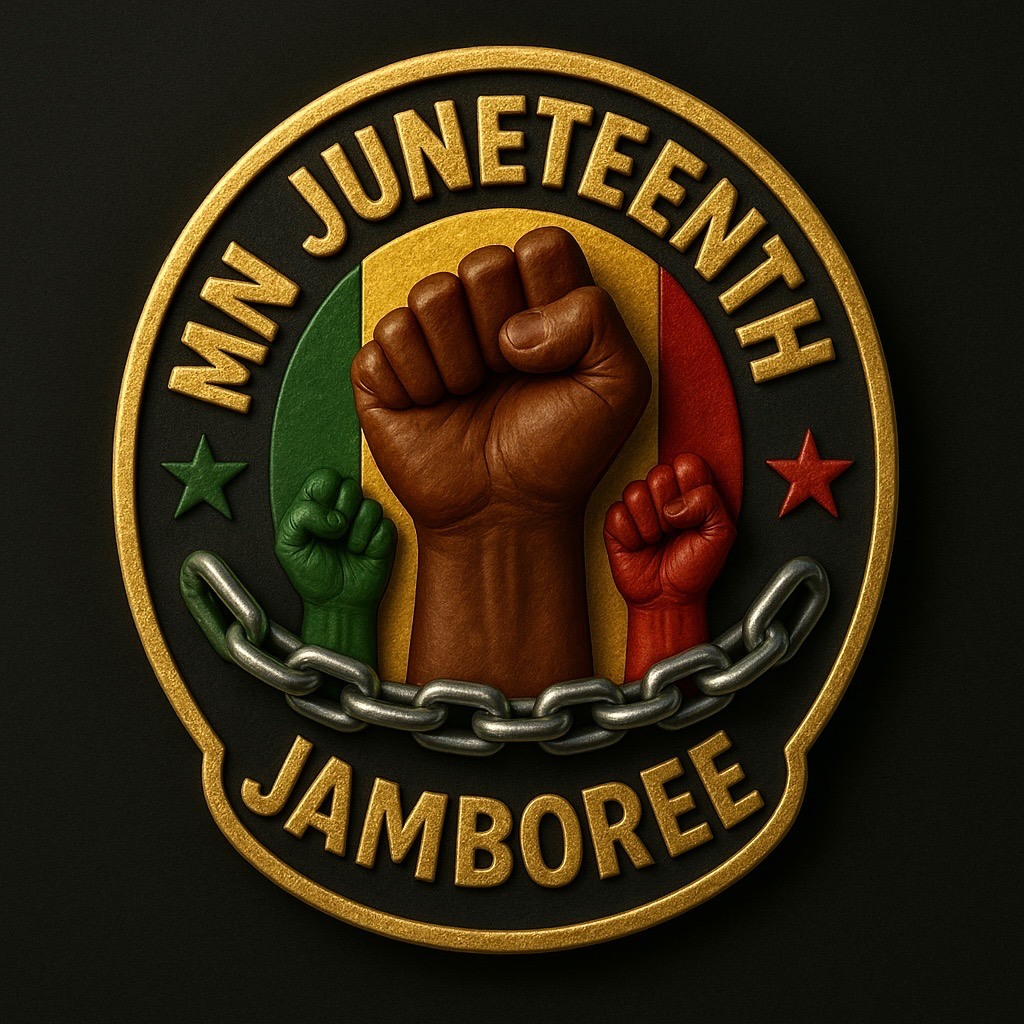 In this fourth installment of our Northside Interview series, we feature Todd Gramenz, the lead organizer of Minneapolis Juneteenth efforts. A dedicated community leader and cultural organizer based in North Minneapolis, and has been deeply involved in Black Lives Matter organizing . He also helped launch the Youth Mental Health and Wellness Center, reflecting his ongoing commitment to uplifting Black youth and advancing equity through community-driven work.
In this fourth installment of our Northside Interview series, we feature Todd Gramenz, the lead organizer of Minneapolis Juneteenth efforts. A dedicated community leader and cultural organizer based in North Minneapolis, and has been deeply involved in Black Lives Matter organizing . He also helped launch the Youth Mental Health and Wellness Center, reflecting his ongoing commitment to uplifting Black youth and advancing equity through community-driven work.
Q: So Todd, let’s start with something personal. What does Juneteenth actually feel like to you?
You know, Juneteenth has always meant everything to me. Those early memories are so vivid—the fireworks lighting up the sky over North Minneapolis, and just feeling this incredible sense of belonging. It really was our Fourth of July, you know? I grew up bouncing between Saint Paul and Minneapolis, and even as a kid, I kept wondering why we couldn’t celebrate together, across the river. It seemed like we were missing something by staying divided.
 Over the years, I made it my mission to check out different Juneteenth events across the cities—experiencing the culture, trying amazing food, meeting new people. But here’s the thing that frustrated me: they were never consistent. Events would pop up one year and disappear the next. That all changed after George Floyd’s death. Suddenly, Juneteenth got the recognition it always deserved. When Minnesota made it a state holiday in 2022, I knew we had momentum. Leaders like Marshall Gibson really inspired me to push for more—to dig deeper into our history and challenge why we’re still so divided when we should be coming together to celebrate who we are.
Over the years, I made it my mission to check out different Juneteenth events across the cities—experiencing the culture, trying amazing food, meeting new people. But here’s the thing that frustrated me: they were never consistent. Events would pop up one year and disappear the next. That all changed after George Floyd’s death. Suddenly, Juneteenth got the recognition it always deserved. When Minnesota made it a state holiday in 2022, I knew we had momentum. Leaders like Marshall Gibson really inspired me to push for more—to dig deeper into our history and challenge why we’re still so divided when we should be coming together to celebrate who we are.
For anyone wanting to understand the real roots of Juneteenth, I always point people to the Minnesota Juneteenth Jamboree website – https://www.mnjuneteenthjamboree.com/ They have incredible resources about the year of 1776 and 1865 – that really put everything in perspective. And this year – West Broadway Juneteenth Block Party takes place on June 19, 2025, from Noon to 6pm right on West Broadway (from Lyndale to Emerson Avenues North). This year’s event promises to be bigger and better than ever, featuring two stages with live music and entertainment, traditional Juneteenth fresh food, and dozens of Black-owned businesses showcasing their products and services. Families can enjoy a kids mini carnival with gaming, explore the powerful Slave History Exhibition, participate in DIY activities, and take home giveaways and freebies. It’s more than just a party – it’s a celebration of freedom, culture, and community resilience that brings together neighbors from across the Twin Cities.
Q: The Black Lives Matter movement obviously changed a lot of things. How do you think it specifically changed how people approach Juneteenth?
Man, the Black Lives Matter movement brought a real shift—not just in how we protest, but in how we tell our stories. I’ll never forget getting my first phone in ninth grade and suddenly being able to see all the injustices happening around me on the East Side of Saint Paul. It felt like living in a quiet war zone—everyone knew what was happening, but nobody talked about it openly.
Once cameras and social media entered the picture, especially after cases like Mike Brown in 2014, everything changed. We could finally document the truth and show the world what we’d been experiencing. That visibility gave Juneteenth new life and pushed people to think more deeply about a hard question: why are Black communities still struggling after centuries of supposed “freedom”?
 I’ve always said I’m here to serve my people – and that means creating real opportunities, not just temporary fixes. BLM made us confront those gaps head-on and inspired me to build something lasting: enterprises where Black voices, Black businesses, and Black futures can actually thrive. That’s exactly the spirit we’re bringing to West Broadway’s Juneteenth celebration this year—turning visibility into action and celebration into community power.
I’ve always said I’m here to serve my people – and that means creating real opportunities, not just temporary fixes. BLM made us confront those gaps head-on and inspired me to build something lasting: enterprises where Black voices, Black businesses, and Black futures can actually thrive. That’s exactly the spirit we’re bringing to West Broadway’s Juneteenth celebration this year—turning visibility into action and celebration into community power.
Q: Let’s talk about something that’s hitting close to home right now. AMA has been working with Northside partners on health stuff like vaccination and tobacco prevention, but federal funding keeps getting cut. Black communities are already dealing with higher rates of flavored tobacco use and less access to healthcare. How do you see these funding cuts playing out in day-to-day life here in North Minneapolis?
This hits on one of the biggest problems I see in North Minneapolis: the complete lack of real funding for our people. Think about it—our community was literally founded here, but they never brought the jobs or resources with it. That creates this vicious cycle: no opportunity leads to frustration, and that frustration can lead to crime and other problems. We desperately need to invest in our kids and their futures. But here’s what really gets me—when it comes to leadership, I don’t feel like they’re truly speaking for us or understanding what we need. There’s this bigger question we have to ask ourselves: do we keep protesting forever, or do we start addressing the root causes?
I think about Dr. Martin Luther King Jr. a lot. He didn’t die so we could keep struggling generation after generation. He died so we could go to school, get educated, raise our families, and live better lives. But I still see too many Black community members being denied basic resources like loans and grants. That fundamental inequality has to change if we want to build something real and lasting.
Q: What do you think actually needs to happen to make things better?
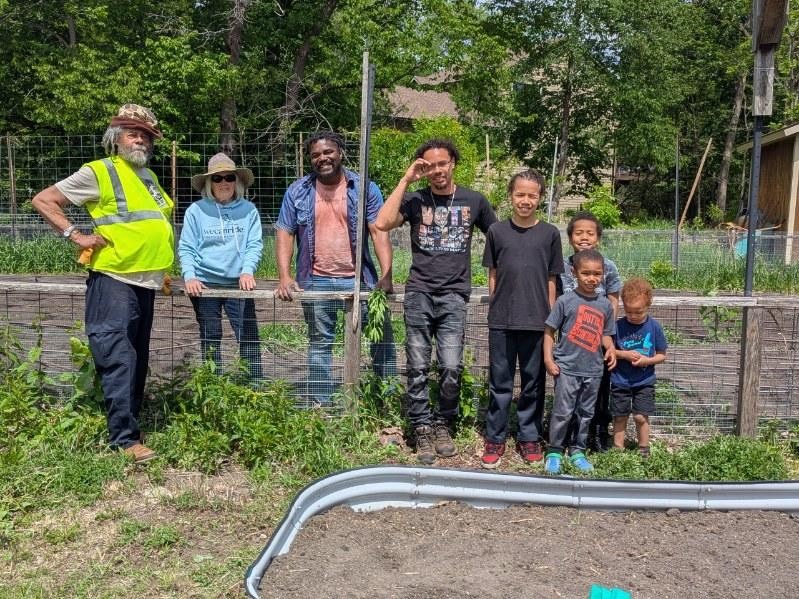 To really address these challenges, we need action on multiple levels, and we can’t wait around for perfect conditions. First, yes, we have to keep pushing the government for proper funding—that’s non-negotiable. But at the same time, we need to create our own enterprises, make our own products, sell them, and build sustainable ways to keep our community thriving.
To really address these challenges, we need action on multiple levels, and we can’t wait around for perfect conditions. First, yes, we have to keep pushing the government for proper funding—that’s non-negotiable. But at the same time, we need to create our own enterprises, make our own products, sell them, and build sustainable ways to keep our community thriving.
Events like Juneteenth aren’t just celebrations—they’re powerful platforms for that kind of economic and social growth. I’ve learned that strong partnerships are everything. My partnership with Asian Media Access is a perfect example—when we come together across communities, we can go so much further, both financially and socially.
Even small actions can make a real difference. Participating in or volunteering at the Minnesota Juneteenth Jamboree (www.mnjuneteenthjamboree.com) is a powerful way to get involved and find your purpose. That event can help you take your first step toward making change.
But here’s what I really want to focus on: EDUCATION. I want to teach our people practical skills—how to start a trust account, how to launch a nonprofit, how to build generational wealth. These are things nobody’s teaching us in school, but they’re absolutely key to building lasting change. It’s that “reach one, teach one” approach—sharing knowledge and building community from the inside out.
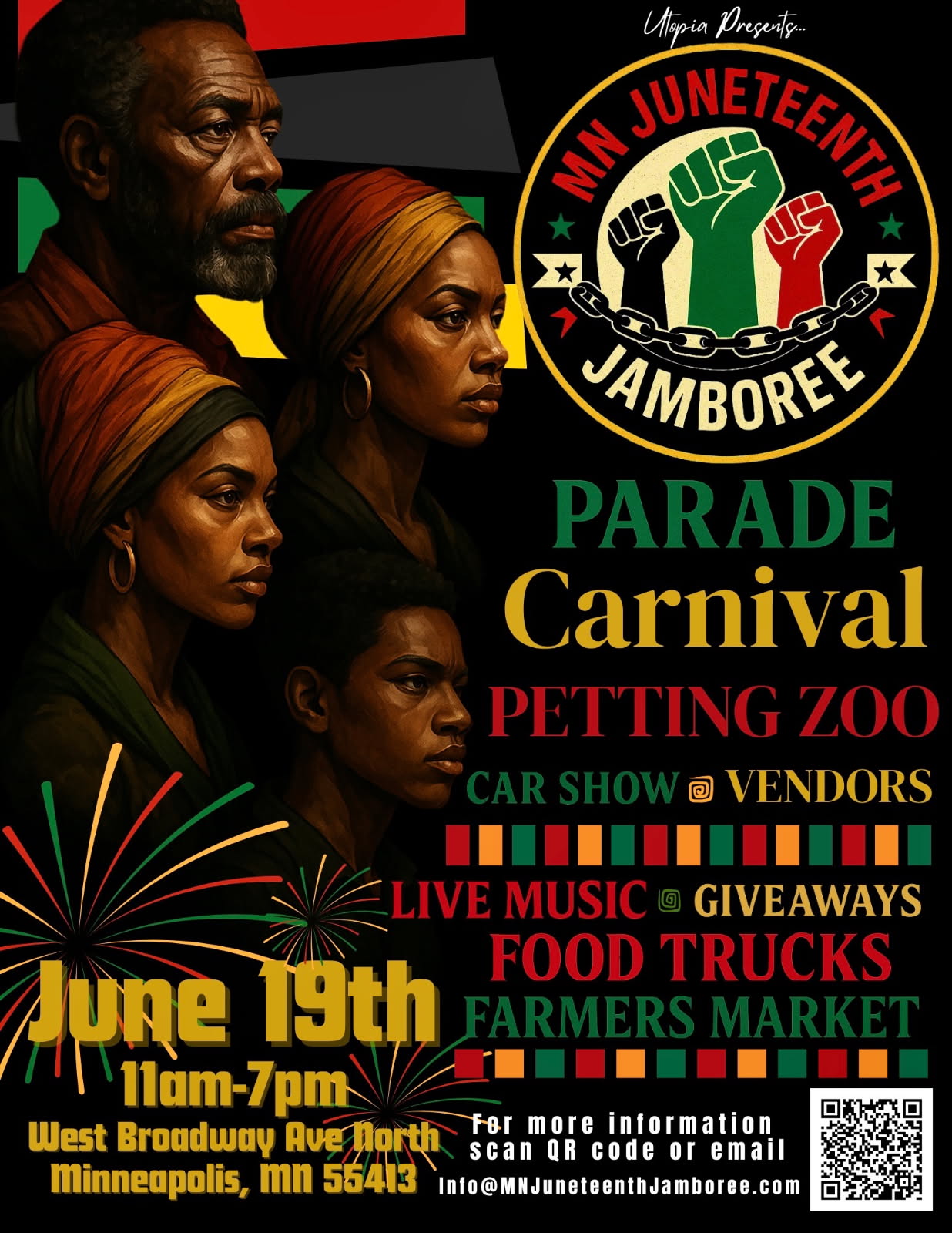 Building Futures Through Shared Power
Building Futures Through Shared Power
Todd’s words remind us that real change doesn’t always start at the top—it begins with one person reaching out to another, sharing knowledge, and building community from the inside out. His “reach one, teach one” approach is more than a motto—it’s a movement rooted in care, action, and empowerment. Through cultural celebrations like Juneteenth and cross-community partnerships like the one with AMA, Todd is helping create space for Black voices, Black enterprise, and Black futures to thrive. His vision isn’t just about responding to what’s broken—it’s about planting something better in its place, one connection at a time.
For More Information: If you’re interested in connecting with Todd Gramenz, reach out to him at blacklivesmattersaintpaul@gmail.com. If you’d like to share your viewpoints with Asian Media Access, contact us at amamedia@amamedia.org.

